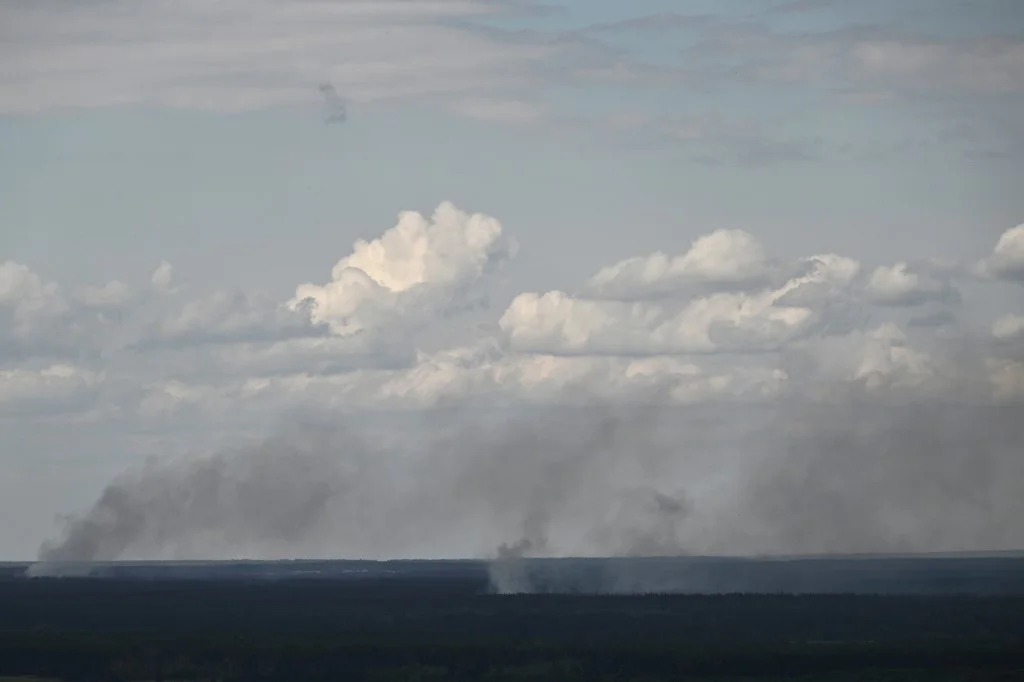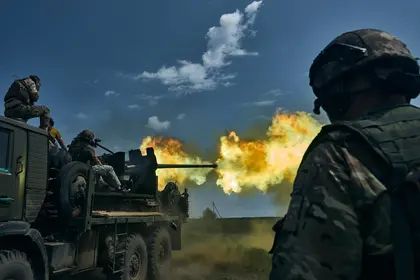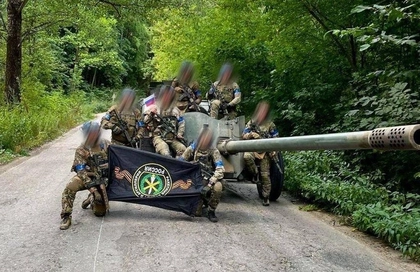Serhiy Cherevaty, the spokesperson for the Eastern Group of the Armed Forces of Ukraine, confirmed, in comments made on Tuesday, July 18, that news reports from earlier in the month that the Kremlin had deployed as many as 100,000 troops in the Lyman-Kupyansk sector were accurate. He said that, while Russia had committed part of this body of troops to a local offensive, Kyiv’s troops are in strong positions and will hold their ground
- Read the most contemporary war in ukraine update in the Kyiv Post’s daily news pieces for today.
- Receive the latest Ukraine news bulletins for today.
Moscow’s troops had been in place for some time but a recent series of Russian attacks in the area is a relatively new development, Cherevaty said in comments to Radio Svoboda.
JOIN US ON TELEGRAM
Follow our coverage of the war on the @Kyivpost_official.
“This issue is not recent; it has been ongoing for many months, and our defense forces have consistently thwarted their progress with strong counterattacks,” Chervaty said. “The presence of 100,000 personnel is not a recent development. The approximate number has been known [to Ukrainian military intelligence] for a considerable time.”
Cherevaty claimed the Russian attacks, though significant in scale, have been ineffective due to the low quality of Russian unit training and lack of real motivation.
“Yes, it is big. We have to take into account its size. However, this number does not indicate a direct threat or a cause for concern,” Cherevaty said.
Russian artillery has increased its level of firing in support of the attack and the Russian intent is to regain the initiative in the north-eastern sector of the front, he said.

Ukraine Targets Key Russian Rocket Fuel Plant with ATACMS and Storm Shadow Missiles
Over a recent 24-hour period Ukrainian forces in the Kupyansk-Lyman sector registered a distinct upturn in Russian barrages counting 536 strikes throughout the day with all calibers of artillery, as well as ten air strikes and eight exchanges of ground-based fire, an Armed Forces of Ukraine (AFU) statement said.
Cherevaty likewise confirmed news reports that more than 900 Russian tanks were present in the Lyman-Kupyansk sector. He said their battlefield effectiveness was limited because most of these are outdated Soviet equipment, and that Ukrainian defenses could handle the Russian armor.
According to an AFP report on Tuesday, the Russian military had claimed that its troops had advanced on a “limited section of the front” in Ukraine’s northeastern Kharkiv region, near the city of Kupyansk, after “successful offensive operations.” The announcement did not say when the attack or attacks took place.
“On the Kupyansk front, units from the Western group of troops continue successful offensive operations,” the Kremlin statement said. “The total advance was up to two kilometers along the front and up to one and a half kilometer in depth”.
“The enemy is striving to take control of the situation. Nonetheless, our defense forces are successfully repelling their advances,” Cherevaty said.

Smoke rising along a frontline in the Lyman direction, Donetsk region, on July 17. PHOTO: AFP.
In past months the Lyman-Kupyansk sector has been relatively quiet with only occasional air strikes, mostly harassing artillery fire and infrequent exchanges of ground fire. The present fighting line in the sector was established in October 2022 following a successful Ukrainian counteroffensive, and has moved little since then.
Cherevaty did not state which specific locations were under Russian attack nor, apart from claiming that Ukrainian forces were holding their ground, did he provide details on how the fighting was going.
Colonel-General Oleksandr Syrsky, AFU Ground Forces commander said on Monday, July 17 during a visit to the front also announced the Russian offensive in the direction of the Kupyansk front. Like Cherevaty, Syrsky claimed the AFU and its defenses had the situation fully under control.
It is assessed that the Kremlin initiated the attacks in a bid to draw Ukrainian reserves away from Kyiv’s own main offensive, in the southern Kherson, Zaporizhzhia, and eastern Bakhmut sectors, Syrsky said.
You can also highlight the text and press Ctrl + Enter






